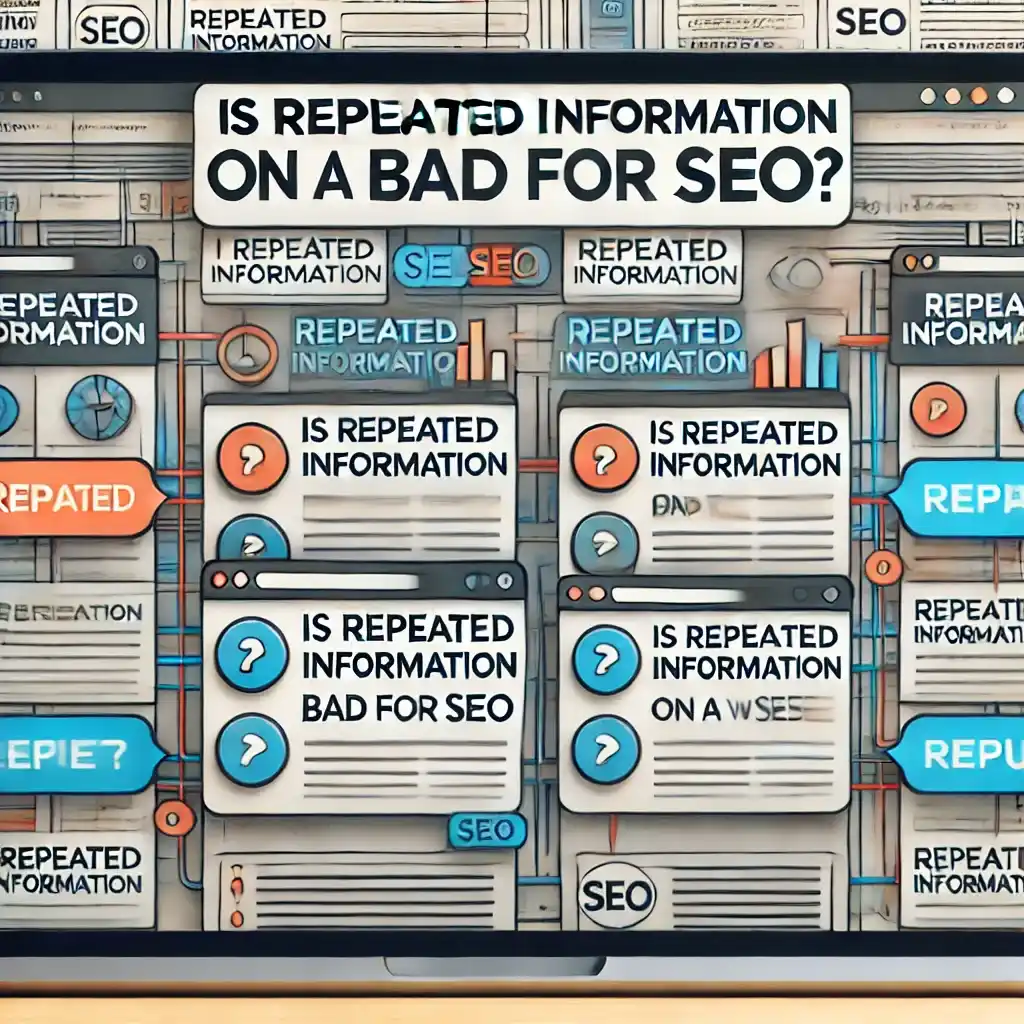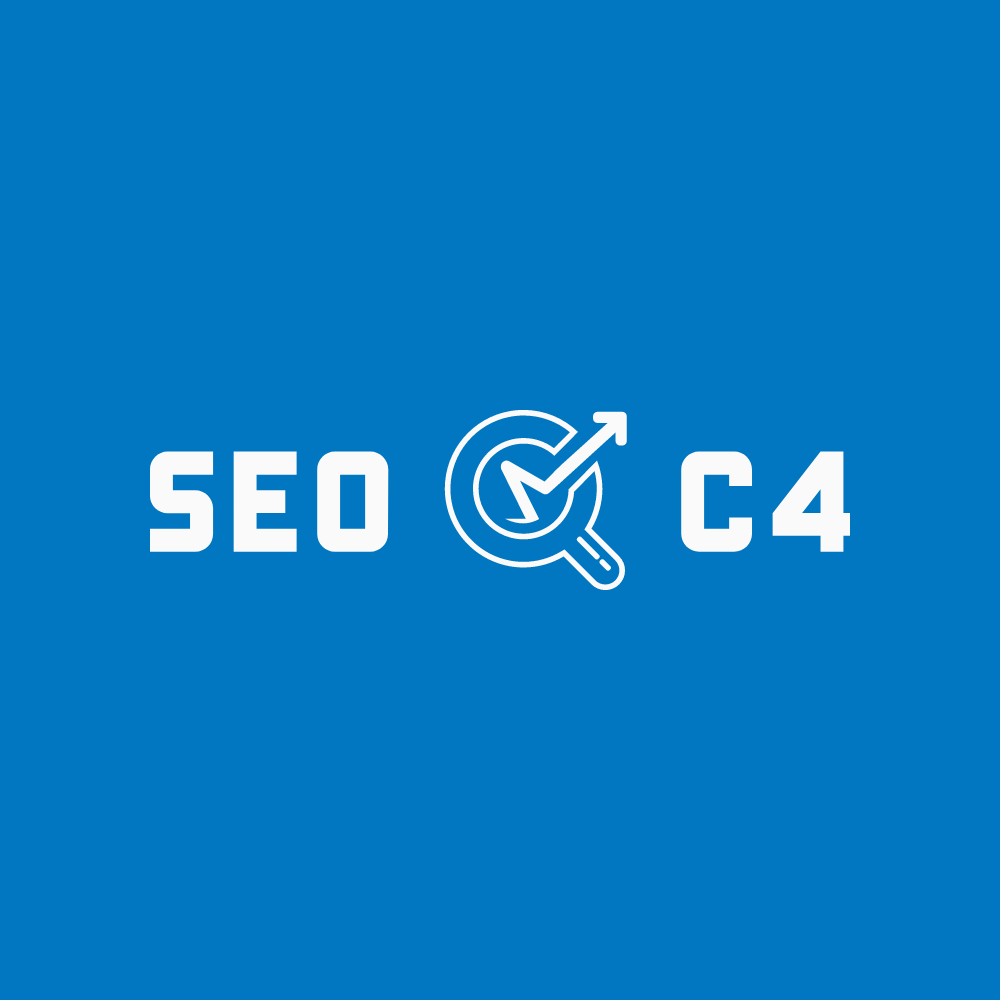
Yes, repeated information on a website can harm SEO. Search engines value unique, high-quality content, so duplicate or repetitive content may lead to lower rankings as it confuses search algorithms and reduces the perceived value of your site. To improve SEO, focus on providing distinct and valuable information on each page, avoiding content duplication that could impact your search visibility.
Introduction to SEO and Content Strategies
The Importance of Unique Content in SEO
SEO thrives on quality, relevant content. Search engines prioritize delivering valuable and unique information to users. Repeated or duplicated content can affect a site’s ability to rank higher, as Google and other search engines may not view the content as valuable or distinct. Having unique content on every page gives search engines more opportunities to index your site and deliver it to relevant search queries.
Why Repetition Happens on Websites
Repeated information can happen unintentionally for several reasons. Sometimes it’s due to site templates, product descriptions on e-commerce sites, or even technical issues. Although the repetition might be unintentional, it can still negatively affect your SEO performance.
What is Duplicate Content?
Definitions and Types of Duplicate Content
Duplicate content refers to substantial blocks of text that appear in more than one place on the internet. This can occur within a single domain (internal duplication) or across different domains (external duplication). Content duplication can be complete (word-for-word) or partial (where significant parts are the same).
Common Causes of Duplicate Content
The most common reasons include:
- URL variations (e.g., www versus non-www)
- Session IDs or tracking parameters
- Printer-friendly versions of pages
- Scraped or syndicated content from other websites
Impact of Duplicate Content on User Experience
From a user’s perspective, duplicate content can lead to confusion and frustration. Visitors might leave a website if they find the same content repeated on multiple pages, thinking they are not getting the value or new information they seek.
The Role of Google and Search Engines in Handling Repeated Information
How Google Defines and Treats Duplicate Content
Google does not penalize duplicate content outright but does filter it. This means when similar content appears across multiple pages, Google selects one version to show in its search results. This can limit the visibility of other pages with the same or similar information.
The Algorithm’s Approach to Ranking and Repeated Information
Search engines analyze the originality and depth of content. Repeated information may be seen as less authoritative compared to unique, fresh content. Google’s algorithms aim to deliver the best possible user experience, so it downplays or avoids ranking repetitive content.
Examples of Sites Affected by Repeated Information
Many e-commerce websites face challenges with repeated product descriptions. Similarly, large corporate websites might have template-based pages that inadvertently duplicate content. These sites often experience poor SEO rankings due to this issue.
Does Repeated Information Directly Affect SEO Rankings?
Analyzing the SEO Penalty for Repeated Content
While repeated information may not directly cause a penalty, it dilutes the SEO value of a site. If search engines are forced to choose between similar pieces of content, only one will be ranked, reducing the visibility of the rest. Thus, in a sense, repeated information indirectly harms your SEO.
Case Studies of Websites Impacted by Content Repetition
Many large-scale sites have struggled with repeated information, particularly those that use CMS systems without careful oversight. Sites that address these issues through canonical tags and unique content creation have seen significant improvements in SEO performance.
Types of Repeated Information that Hurt SEO
Keyword Stuffing and Redundancy
Overusing the same keywords and phrases throughout a website may lead to keyword stuffing, which search engines flag as manipulative behavior. Not only does this not help your SEO, but it can also result in a drop in rankings.
Low-Quality Content and Thin Pages
Content with little to no original value, sometimes referred to as “thin” content, can hurt SEO efforts. Thin content often results from pages that repeat the same information across various sections of a website.
Auto-Generated or Boilerplate Content
Boilerplate content refers to blocks of text repeated across many pages. While it’s often used for legal disclaimers or product descriptions, if overused, it can lead to SEO issues due to a lack of uniqueness.
How to Avoid Repeated Information on Your Website
Best Practices for Content Creation
Creating unique, high-quality content tailored to specific pages and audiences is essential. Conduct thorough research for each topic, avoid reusing the same paragraphs across multiple pages, and ensure every page offers distinct value.
Effective Use of Canonical Tags
Canonical tags tell search engines which version of a page to prioritize when duplicate content is unavoidable. Using canonical tags is an effective way to manage duplicate content and ensure search engines index the preferred page.
The Role of Meta Descriptions in Avoiding Repetition
Meta descriptions should be unique for each page. Repeating meta descriptions can lead to missed SEO opportunities, as search engines use these snippets to understand the page’s relevance.
Alternatives to Repeating Information for SEO Purposes
Enhancing Content with Synonyms and Variations
Rather than repeating the same information, you can enhance your content with synonyms, rephrasing, and different angles on the topic. This helps to keep the content fresh while still targeting similar keywords.
Leveraging Internal Linking and Structured Data
Internal linking allows you to direct users and search engines to related content without repeating the information. Structured data, such as schema, helps search engines understand the content better without needing repetition.
How to Use FAQs and Long-Tail Keywords to Diversify Content
Incorporating FAQs and long-tail keywords provides an opportunity to expand the range of topics covered without repeating the same information. These also help address specific user queries.
The Future of SEO and Duplicate Content
Google’s Evolving Algorithm Updates on Duplicate Content
Google is continuously improving its algorithms to better detect and manage duplicate content. Future updates are likely to become even more stringent, emphasizing the need for unique, high-value content.
Predicted Trends in Handling Repeated Information
As artificial intelligence becomes more advanced, search engines will likely develop more sophisticated ways to identify and filter repeated information. Websites with distinctive content will be better positioned for long-term success.
FAQs
1. What is considered duplicate content in SEO?
Duplicate content is when identical or substantially similar content appears on multiple URLs, either on the same site or across different sites.
2. Does Google penalize websites for repeated information?
Google doesn’t penalize duplicate content directly but does filter repeated pages, which can lower visibility and hurt overall SEO performance.
3. How can I check for duplicate content on my website?
Tools like Copyscape, Siteliner, or Google Search Console can help you detect duplicate content issues on your site.
4. Can internal repetition affect SEO?
Yes, repeating content across multiple pages of your website can lead to search engines treating those pages as less valuable, reducing their chances of ranking well.
5. What are the best practices for handling duplicate content?
Best practices include creating unique content, using canonical tags, and ensuring proper URL structures to avoid duplication.
6. Can repeated meta descriptions hurt SEO?
Yes, repeated meta descriptions can confuse search engines and users, leading to missed SEO opportunities.
Conclusion
Repeated information on a website can indeed hurt SEO if not managed properly. While search engines like Google do not always penalize duplicate content directly, they prioritize unique, valuable content for ranking. Implementing best practices for content creation and management, such as using canonical tags, internal linking, and structured data, can help you avoid SEO pitfalls. The future of SEO will likely involve even stricter policies against content repetition, making it crucial to focus on creating distinct, high-quality content for every page.
Read More
Does Using Other Pages’ Images on Your Website Hurt SEO?
SEO Content Writing, Significance, and Professional Tips
276 Marketing Terms You Need To Know In The Digital Marketing
Why Business can’t survive without an effective content marketing
Optimizing organic traffic and UX through an iterative content process




